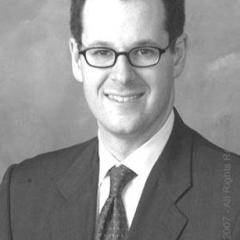
Shavuot: Chag Matan Torateinu, the festival of the giving of our Torah
Recently, we celebrated Shavuot, the third of our “Three Festivals.” For some, Shavuot is the lesser-known stepchild of the festivals. We all know and celebrate Passover, season of our freedom. And even if all of us don’t build a sukkah of our own, many are well acquainted with the nature and harvest imagery of Sukkot: the lulav and etrog, the green roof of the sukkah which opens to the stars. But what is Shavuot all about?
Shavuot is known as Chag Matan Torateinu, the festival of the giving of our Torah. Some may refer to Shavuot as commemorating our receiving of Torah on Sinai, but the difference is poignant. Like many of our rituals and holiday celebrations, we have one foot in the past and one in the present, pointing towards our future. While the giving of Torah happened a long time ago in the wilderness on a great mountain, we continue to receive this gift every day and in every generation. If we are to continue to recognize the true value of such a gift for generations to come, we must make sure that it is relevant to and understood, appreciated and loved by our children.
In the Reform Movement, we often celebrate confirmation on Shavuot. But unfortunately, as Rabbi Rick Jacobs has stated, “A staggering 80% of our b’nei mitzvah drop out before confirmation. Stemming this exodus is the impetus for a Movement-wide transformation of how we interact with our youth…. Only by creating closer and more enduring relationships with our youth can we hope to reverse this trend.” The URJ Campaign for Youth Engagement focuses on a number of ways to connect with our youth, but especially on Shavuot, we must reflect and strengthen our connections l’dor vador, from generation to generation.
L’dor vador
At my synagogue, Temple Ohabei Shalom in Brookline, MA, one way that we do this is to build a scaffolding of programming around Shavuot and confirmation. Since we celebrate Torah, and therefore, learning, the evening of Shavuot became a community-wide “Education Celebration.” We began with very musical step-up night/graduation for our preschool children and their families. Before they were done, our elementary religious school children joined the festivities for a year-end wrap-up, awards and more singing, including Cantor Richard Silverman’s perennial favorite “Tree of Life.” It’s amazing what a catchy tune and some fancy clapping can do!
Tree of Life
After a community (traditional dairy) dinner, all generations moved on to Shavuot services and confirmation. Confirmation can often be a challenging time in the life of a millennial. When kids in high school are already feeling the increased pressure of academics, sports, other activities and social issues, how can we convince them to appreciate and engage in additional Torah learning? I think the answer lies in one of our Shavuot traditions: the Book of Ruth. Famously, Ruth becomes perhaps the first convert to Judaism as she tells her mother-in-law, Naomi, “Don’t press me to leave you and stop following you; for wherever you go, I will go; and wherever you stay, I will stay. Your people will be my people and your God will be my God.”
Al Tifg’i Vi
One reason that we read the Book of Ruth on Shavuot is surely that Ruth, through her words and actions, has clearly accepted Torah. But she didn’t do it through learning. She did it because of her powerful relationship to Naomi. Because of her love of Naomi, she felt welcomed into the Jewish people. I think it is not coincidence that “your people will be my people” comes before “your God will be my God.” And the same can be said for our confirmation students. They had a productive year in terms of study, but mostly, they have created and maintained powerful connections, Jewish connections. And while they led our Shavuot worship and chanted the Ten Commandments, their success is measured by their relationships, to their families, to their clergy, to their community and to each other.
Since 2007, ACC member Cantor Randall Schloss has served Temple Ohabei Shalom in Brookline, MA where he creates an environment of active and participatory worship through a rich blend of musical traditions, including his own original compositions. Whenever possible, he enjoys singing together with his wife, soprano Leah Schloss, and their two daughters, Maya (12) and Sonya (9), also sopranos!

